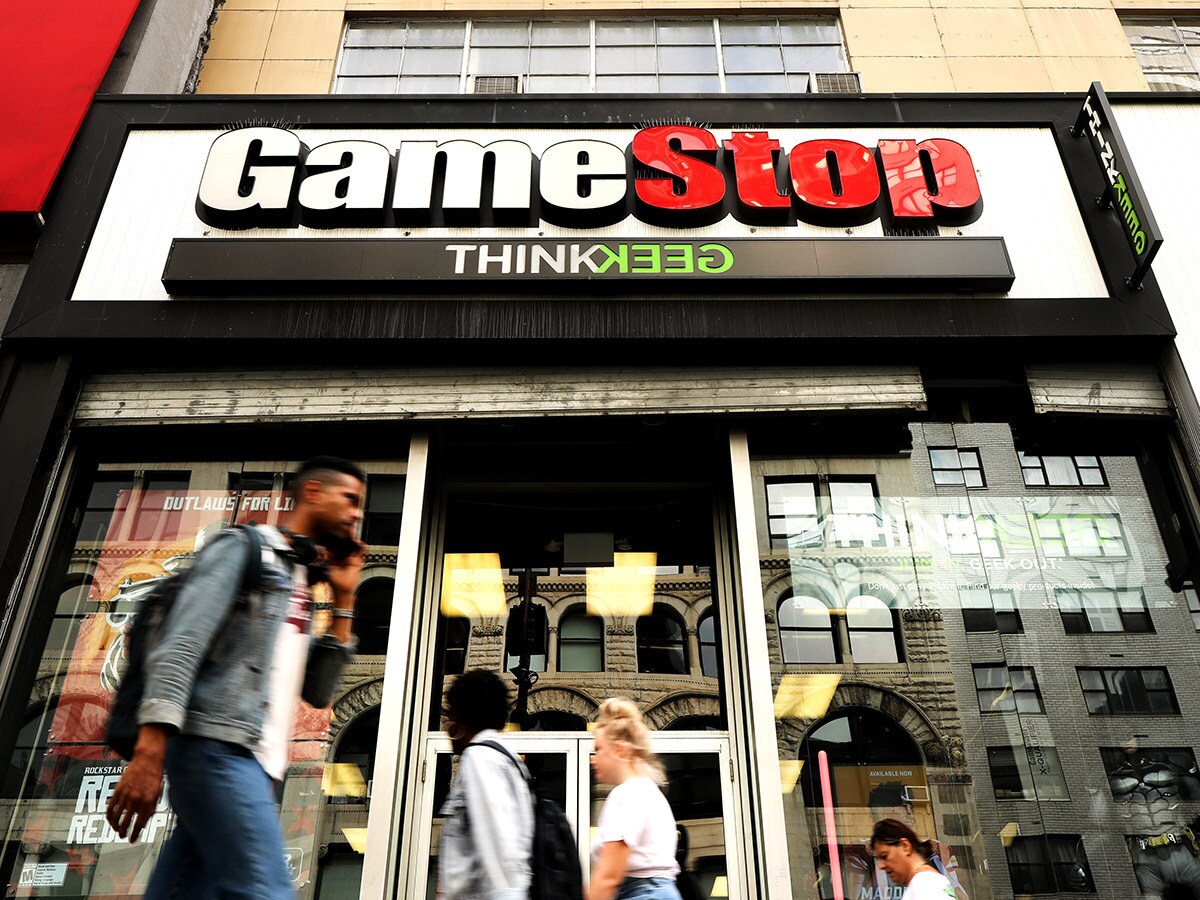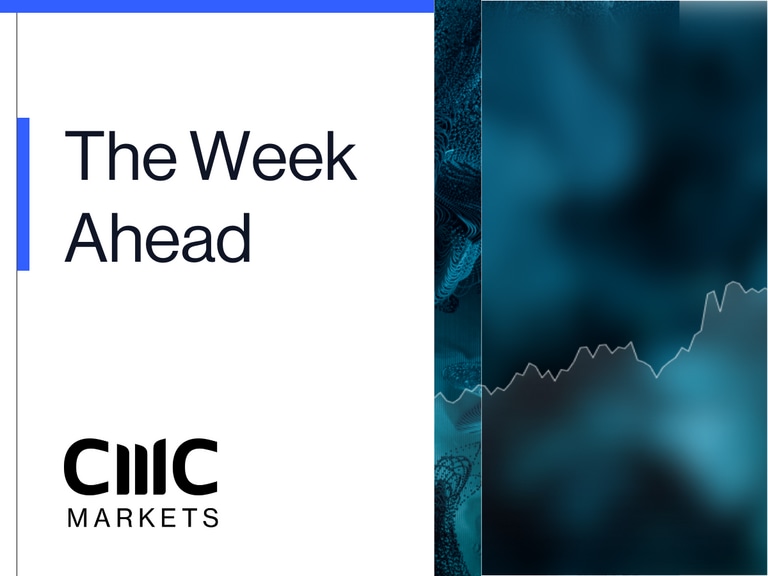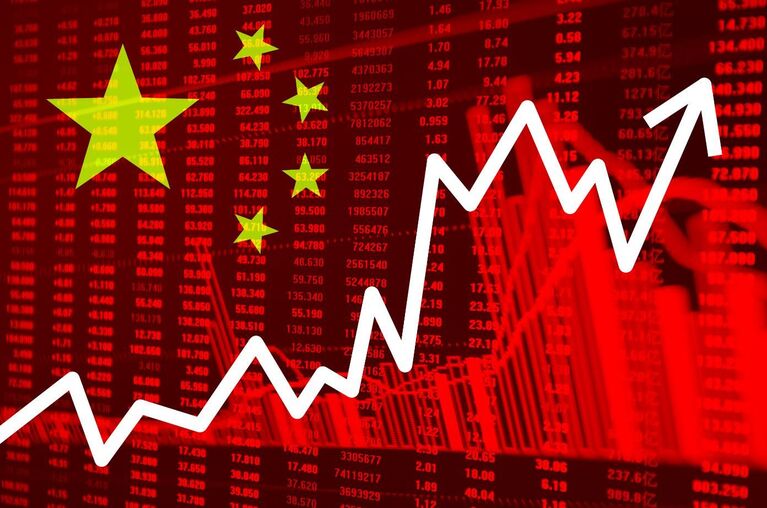
If 2020 was the year of significant growth in stay-at-home stocks like Netflix, Zoom and Peloton, as millions of people were confined to their homes, is 2021 likely to be the year of the meme stock?
The term ‘meme stock’ is derived from the message boards of Reddit and Twitter, and the ubiquitous #wallstreetbets hashtag that accompanied early January’s activity on the movement of the GameStop share price. With the increasing accessibility of financial markets by way of trading apps like Robinhood, there is a growing cohort of young retail traders who now have the ability to start driving flows in US stock markets.
GameStop and AMC start the trend
The WallStreetBets saga really got moving when these traders identified GameStop, as well as Odeon Cinemas owner AMC Entertainment, as candidates for possible trading opportunities. Both companies’ share prices were at extremely low levels due to concerns about their fiscal sustainability in the wake of the pandemic, and whose shares were also heavily shorted by hedge funds and other financial institutions. Crucially, these savvy traders identified GameStop as a company which had a short selling interest of 140% of its free float, an entirely unsustainable state of affairs as it turned out.
Despite being controversial, short selling is an entirely legitimate activity if investors and markets feel that either the shares are overvalued and due a fall, or that company management are being less than honest about the day-to-day activities of the business, and shine a light on how the business runs. Last year the likes of Sainsbury’s and Cineworld were among the most shorted UK stocks, with short sellers seeing little in the way of success, which shows it can also be a very risky practice as it can backfire horribly against the short seller.
While it’s easy to paint the practice of short selling as being a bad thing, it can also play a part in uncovering scandals like Wirecard and NMC Health recently, as well as high profile cases like Enron. It also played a part in the bursting of the US housing bubble squeeze that saw Michael Burry uncover the house of cards that was US sub-prime mortgages.
What the last few months have taught us is that short selling has become inherently riskier than ever before. Now, however bad a company’s fundamentals are, it has become much riskier to bet against it due to the swarm-like mentality of the new breed of trader that exists on social media message boards.
Saga could lead to regulation
The turmoil has highlighted several areas within the market that might prompt regulatory scrutiny in the future, namely the monitoring of retail trade chat forums and message boards, and how they drive markets.
There is also the concern that the volatility seen this year served to create victims in the retail space as inexperienced traders who wanted a piece of the action got horribly burnt with in some cases tragic consequences, as a result of the huge amounts of volatility unleashed.
Taking GameStop ‘to the moon’
In January, GameStop’s share price was languishing down at $17.25, still higher than its July 2020 low of $3.77, but still trying to convince shareholders and the wider market it had a viable turnaround plan. In the ensuing volatility caused by the hedge fund short squeeze at the end of January, the shares went as high as $480, before sliding back to $39, and then embarking on another rebound to over $300
At its most recent set of numbers, the company generated Q1 revenues of $1.28bn, posting a loss of $0.45 a share. Despite this the shares have traded in a range between $118 and $340 in the last three months.
This eye-watering volatility also saw AMC Entertainment shares surge. The company which owns the Odeon chain of cinemas and IMAX, has been struggling for years now with lower footfall and declining revenues.
The GameStop share price recently hit record highs on huge amounts of volume, despite having finances that are in worse shape now as a result of the pandemic than they were in 2015, when the shares were at their previous peak.
What these share surges have done is helped management of these beleaguered companies raise new funds through share issues to help fund turnaround plans for the business model. While that may work on some level, unless there is a change in the management that has seen the share prices of these companies come under pressure it’s hard to see how that might save a company that has a failing business model.
Meme stock phenomena spreading
The meme theme is now starting to spread out into other areas of the market, with the likes of Bed Bath & Beyond and ContextLogic, who own e-commerce site Wish, hamburger chain Wendy’s and Clover Health all seeing huge amounts of volatility in the last few months. The volatility in the Bed Bath & Beyond share price in the last six months has seen Bank of America withdraw its rating on the stock, with the admission the stock is no longer trading on its fundamentals.
While one could draw that conclusion for a lot of companies on the US stock market, Tesla and Uber being obvious examples, it is nonetheless a revealing admission on the part of one of the biggest US banks who issue ratings on behalf of investors.
ContextLogic’s fortunes have been plagued by concerns over its Wish e-commerce site, which is an online marketplace bringing together buyers and sellers from all over the world. Problems have been reported with counterfeit products, according to consumer magazine Which?, along with items that would be illegal to sell in the UK because they don’t conform to safety standards.
The Wendy’s share price has also fluctuated in recent days after Reddit users said that the stock was undervalued due to a decent increase in same store sales, with a lot of the restaurants now open again. As a result, the shares pushed up to a new record high before slipping back, after management took the opportunity to refinance its outstanding debt as well as issue $900m in new notes.
Clover Health Investments came under scrutiny back in February after it was alleged that the company had lured investors to buy shares without disclosing an ongoing investigation by the US Department of Justice. The company denied the allegations in the strongest possible terms. Given the level of short interest the shares rallied hard after it was identified by Reddit users as a likely candidate for a short squeeze.
These companies are just a few that have come into the sights of the Reddit crowd, but also highlight the risks facing novice as well as experienced hands when it comes to participating in the ebb and flow of financial markets. A lot of these stocks have been chosen not only for their size but also for the limited availability of their shares, which means they can be quite easy to manipulate.
Looking beyond meme stocks
The volatility of the past few months has certainly helped generate headlines but it has also raised serious questions as to how a small cohort of traders on a social media forum can drive share price volatility.
If a cohort of banks or hedge funds did something similar you can be sure that regulators would be looking into it. This could have consequences for companies like Robinhood who have been at the forefront of driving the increase in no fee, or low fee brokerage companies, and which is due to IPO in the next quarter. Could Robinhood become another meme stock when it comes to the market?
This is where future regulation could well act as a headwind. Product innovation is all well and good but leveraged investing along with fractional exposure to various asset classes creates challenges all of its own when it comes to managing risk properly and sensibly, and all too often novice traders aren’t aware enough of the enormous risks they are taking by trading on leverage.
The rewards are indeed big but the risks can be even bigger, and investors in meme stocks need to be aware that most of these companies aren’t trading on their fundamentals, and are more akin to riding the rollercoaster at Lightwater Valley; stomach churning and sometimes painful.
All of this needs to be taken into consideration when looking at trading on the meme theme, as more often than not the market will dole out a painful lesson, whatever your level of expertise.
Disclaimer: CMC Markets is an execution-only service provider. The material (whether or not it states any opinions) is for general information purposes only, and does not take into account your personal circumstances or objectives. Nothing in this material is (or should be considered to be) financial, investment or other advice on which reliance should be placed. No opinion given in the material constitutes a recommendation by CMC Markets or the author that any particular investment, security, transaction or investment strategy is suitable for any specific person. The material has not been prepared in accordance with legal requirements designed to promote the independence of investment research. Although we are not specifically prevented from dealing before providing this material, we do not seek to take advantage of the material prior to its dissemination.






















